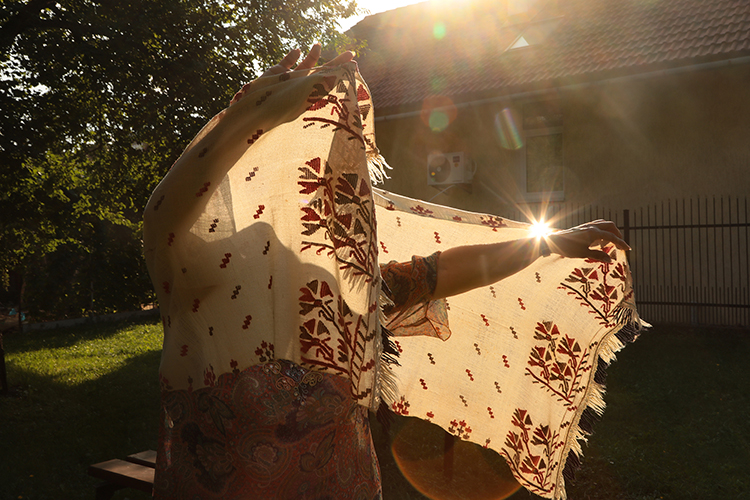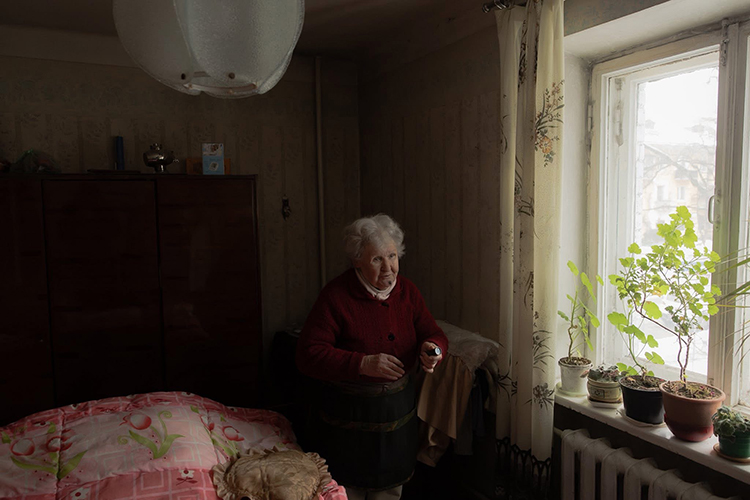Watch the full interview:
On the coverage of the war by foreign photographers and Ukrainian
Danylo Pavlov:I believe that foreigners have a qualitatively different approach to the construction of history. A person who came from abroad has two weeks, she concentrates on something specific and makes history. And we are constantly in this content. And the vast majority of colleagues do the news format not because of the inability to create something else, but because of attachment to our Ukrainian context and to the war. And it is difficult to combine two foci of attention at the same time.
Changing the Perception of Our Opposition
Serhiy Korovaynyi:I never thought before this war how important work we were doing. Because simply Russia commits atrocities that could not be imagined in the 21st century, if we, our colleagues, had not left after the de-occupation of Kyiv region to Bucha, Gorenko, Makariv, Trostyanets, then people simply would not believe in Ukraine and abroad that on the streets of the suburbs of the great European capital there are bodies of cloaked people, if there were no photographers and photographers. That's why we really do important work. And we have and will continue to work.





About accessing stories and working in the fields
Vyacheslav Ratynskyi:A lot of bureaucratic obstacles stand in the way of a journalist, a photographer to the front line. But this is not a claim to anyone, presoficers very often try hard, do everything in their power, but this is not enough not to lose this information war.
Now Ukrainian photographers are very rarely allowed to stay at the front for a long time, although it is the long trips that give real results, as we see in Mariupol, the work of foreign journalists in our country.





Sergey Krovaynyi:In the East, everything depends on the press-fitters and on personal contacts. I have a feeling that our army with us is learning on the move how to cooperate together. To be honest, I have high hopes for Illarion Pavlyuk, who headed the Press and Information Department of the Ministry of Defense of Ukraine. Because he is a journalist with combat experience and I hope that he will improve the work with the media, as was previously impossible, and become better for everyone.
Danylo Pavlov:A lot of photographers want to get this access to places where the fighting takes place. Sometimes it is necessary for the pressoficer to understand that you do not want evil, but want to make a story so that it is of high quality in the first place, and you do not want to make a good picture that will not look entirely honest.
I can say that we can't compete with The New York Times because Reporters is a very small media in comparison.
However, the front is not a safari for photographers.
I understand this desire to constantly move closer, I also have it, but stories should be not only from the front line. We are surrounded by a bunch of different issues and a bunch of different stories that we can cover.





About the bright moments of the war
Vyacheslav Ratynskyi: War consists, like everyday life, of a gamut of moments, black and white. And they are sometimes very black and sometimes very bright. It's just that these moments change very quickly.
In the course of the day, several things can happen that will just completely turn you off, upset, or make you absolutely happy.
Serhiy Korovaynyi:I recently worked on a selection of photos to submit to the annual contests with colleagues from the Wall Street Journal. We made collective applications and I saw that it turns out that in my photos there is more light, just physically, more light, more colors. I live here and see this country as a breathing and living organism too.
Perhaps this is what makes me different from my fellow foreigners at the Wall Street Journal. That we see light where others may seek only grief.
Danylo Pavlov: From bright moments, for some reason I remembered the New Year and the Christmas tree on an empty square in Bakhmut, which we carried with the SNSniks and put there, meeting 2023.
It was a very joyful moment, and then we came back from there and it became unspeakably sad.
There is another bright thing about war: you can feel a person in seconds, see really very cool, bright people.
— Vyacheslav Ratynskyi
Discussion participants:
Serhiy Korovaynyi— Photojournalist and portrait photographer. Collaborates with international publications, including the Wall Street Journal, Washington Post, The Guardian, Financaial Times and others. He makes his documentary projects, where he focuses on the themes of the Russian-Ukrainian war, ecology, and various aspects of Ukrainian modernity.
Vyacheslav Ratynskyi — Ukrainian reporter and documentary photographer. Graduate of the Faculty of Journalism of Ivan Franko National University of Lviv. Collaborates with Reuters.
He has been published in many Ukrainian publications (Ukrainska Pravda, Hromadske, NV, Reporters and others), as well as in a number of foreign publications (Time, The Guardian, The Wall Street journal, The Washington post, The New York Times, Der Spiegel).
Danylo Pavlov— Documentary photographer from Ukraine. Reporters.media photo editor, photographer of The Ukranians.
Lina Zelenska— journalist, TV presenter and moderator of the meeting.
We are grateful Work.uafor supporting and assisting in strengthening Ukrainian voices.






















